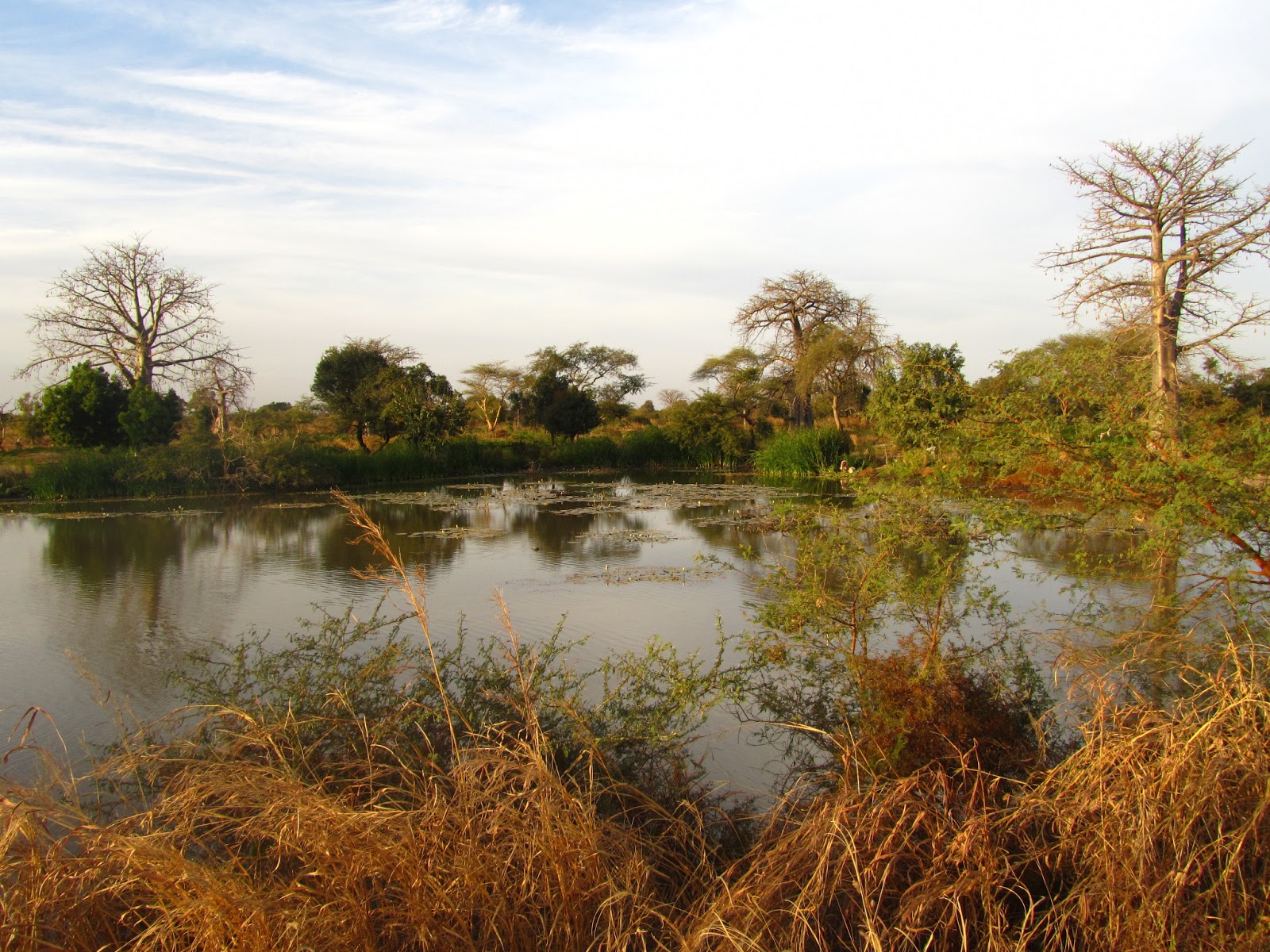 |
| Best picnic spot |
Chrissie, Alicia and I sleepily departed the Tambacounda
regional house on Christmas Eve morning with zero expectations. I desperately
needed to get away from my region as I was going a little stir crazy after
repeating the same routine for over 2 months.
 Our first clue of crossing over the border into a different
country, and a former British colony, was when we saw a ‘Police’ car
pass us on the road (instead of Gendarme) followed by children eagerly chasing
our bikes and simultaneously shouting ‘Helloooo, How are you’. It was bizarre.
I forgot how accustomed I have become to everyone speaking French! Greeting
people in English and being able to negotiate prices in my native tongue was a
whole different ball game that I never got used to.
Our first clue of crossing over the border into a different
country, and a former British colony, was when we saw a ‘Police’ car
pass us on the road (instead of Gendarme) followed by children eagerly chasing
our bikes and simultaneously shouting ‘Helloooo, How are you’. It was bizarre.
I forgot how accustomed I have become to everyone speaking French! Greeting
people in English and being able to negotiate prices in my native tongue was a
whole different ball game that I never got used to. |
| Wassu Stone Circles |
Contrary to
its obscure geographic proximity (look at a map) and ethnic similarities, the differences did not end with the English language. Because of the
size, colonial histories, current presidential situation, and more, the Gambia and Senegal are two very different
countries.
 |
| Ferry crossing, the man refused to accept money from us to pay for the ticket |
In total we biked over 430 kilometers although the time flew by due to the lax pace and good company- we impressively sang all of 100 bottles of beers on the wall, played 21 questions for hours and discussed everything from the validity of obscure cereal flavors to pigmy rituals.
The scenery, company and fresh air were enough to make a
perfect trip but what was truly the icing on the cake were the people who we
met on the way. While I do not know why, we collectively decided that Gambians
are friendlier than Senegalese people, which was a touching reminder of why I
returned to Africa for Peace Corps. I was
thoroughly impressed by the kindness and generosity of Ghanaians and found
Gambians to be just as warm.

After biking 3/4th of the country we decided to take an extra detour to visit James Island and Juffure, where the writer Alex Haley traced his African roots. Afterwards, he wrote a book titled “Roots” which became an American classic and made James Island a popular tourist attraction.
 Visiting
the Island was fascinating as there was a
crumbling fort that thousands of slaves had been shipped out of and a group of
American tourists who made themselves known by rudely shouting ‘can yall stop
speaking The Gambian already!’.
Visiting
the Island was fascinating as there was a
crumbling fort that thousands of slaves had been shipped out of and a group of
American tourists who made themselves known by rudely shouting ‘can yall stop
speaking The Gambian already!’.But for me, the real adventure was the journey there. We took a horrible road off of the main highway to get down to Juffre which took us longer than expected. As the sun was setting we rolled into a small Wolof village and asked if we could pitch our tents and spend the night in someone’s compound. The prospect of making us sleep outside was appalling and we were quickly ushered to the chief’s home. Upon entering the compound, 65 adults and children alike surrounded us, unable to tear their eyes away. To entertain them we sung a round of ‘jingle bells’ that was an immediate hit and turned into a clapping and dancing fest. Afterwards we were brought to a massive room with a private bathroom that was our lodging for the night. Two families brought us food and were sad to see us go the following day.
 |
| James Island |
Once in Juffre, we were reminded of the fact that we are white, rich, tourists and were constantly asked to give money for this and that, making me so frustrated that I was ready to leave without spending the night. But once again, our language skills changed the experience. As soon as we turned the conversation into Mandinka or Pulaar our skin color became inconsequential. We were offered a free place to stay, tea, and food that was pushed in our faces until we could no longer politely turn them down and were forced to oblige.
 |
| The river at Georgetown, the previous Gambian captial |


No comments:
Post a Comment